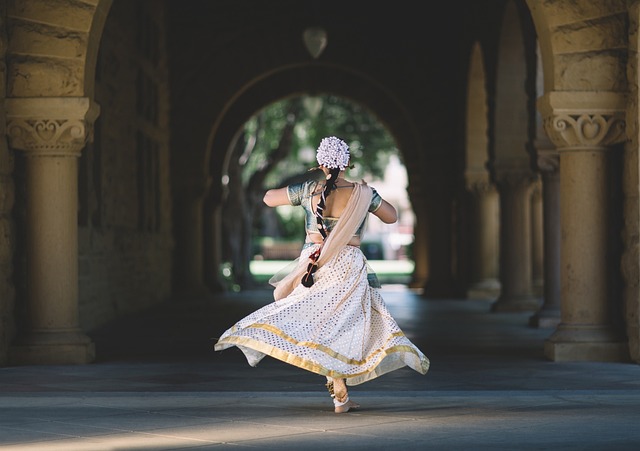
Judicial Independence in India: CJI Chandrachud’s Reassurances
Friends, today we’re going to discuss a topic that's been in the news lately: the delicate balance between the judiciary and the executive in India. We've all been following the controversy surrounding the Prime Minister's recent visit to the Chief Justice of India's residence for Ganpati puja. Some people have raised concerns about the appearance of impropriety and potential threats to judicial independence. However, the Chief Justice of India, D.Y. Chandrachud, has come out strongly to address these concerns, offering reassurances about the judiciary's unwavering commitment to its principles.
He’s asserted that the independence of the judiciary is deeply ingrained in India’s constitutional framework and that social interactions between the judiciary and the executive, while commonplace, never involve discussions about judicial matters. In fact, the protocol governing these interactions is strict, preventing any potential influence or perceived threat to the judiciary's integrity.
This is crucial to understand: the separation of powers is the cornerstone of a democratic system. The judiciary is meant to be a neutral arbiter, ensuring that the law is applied fairly and impartially, regardless of political considerations. To maintain public trust and confidence in the legal system, it’s absolutely essential that the judiciary is seen as independent and free from external influence.
“We know our duties in the democratic system of governance and the political executive know theirs. No judge, least of them the CJI or CJs, can even remotely invite any threat, actual or perceived, to the independence of judiciary.” — CJI D.Y. Chandrachud
Understanding the Protocol:
The Chief Justice has provided clarity on the nature of these social interactions, emphasizing that they're strictly limited to non-judicial matters. While leaders of the executive branch may visit the residences of judges for social occasions, such as weddings or festivals, these interactions are solely for personal reasons and do not encroach upon the judiciary's independence.
This clear distinction is vital for maintaining the public’s faith in the judiciary. When political leaders and judges interact socially, it’s essential that these interactions are perceived as purely social and not indicative of any undue influence or compromise of the judiciary’s integrity. The Chief Justice has underscored this point, stating that he cannot recall a single instance where any judicial matter was discussed during these social interactions.
Focus on Infrastructure and Administrative Issues:
Instead of discussing judicial matters, the Chief Justice has clarified that the focus of these formal interactions is on addressing administrative and infrastructural needs of the judiciary. There is a pressing need to improve the infrastructure and resources available to the courts, particularly in light of the vast backlog of cases. These meetings provide a platform for the judiciary and the executive to collaborate and ensure that the necessary funds and support are allocated to improve the efficiency and effectiveness of the judicial system.
A Delicate Balance:
The relationship between the judiciary and the executive is inherently complex, demanding careful navigation to maintain both independence and cooperation. It is crucial to recognize that the executive branch has a role in supporting the judiciary through funding and administrative provisions. However, this support must not be seen as a means of influencing or controlling the judiciary.
The Chief Justice's statements provide important reassurances about the judiciary's commitment to maintaining its independence. It's a reminder that while social interactions between the judiciary and the executive are unavoidable, they must remain purely social and not infringe upon the judicial process. The independence of the judiciary is a fundamental pillar of our democracy, and we must remain vigilant in safeguarding it.
Illustrative Comparison:
It’s helpful to think of this in terms of a balance scale. On one side, we have the executive branch, responsible for governance and policy-making. On the other side, we have the judiciary, responsible for upholding the law and protecting individual rights. To ensure a functioning democracy, these two branches need to work together, but each must maintain its own autonomy and integrity.
Branch | Role | Key Functions |
Executive | Governance and Policy-making | - Implementing laws - Managing public funds - Overseeing government departments |
Judiciary | Upholding the law and protecting individual rights | - Interpreting laws - Settling disputes - Enforcing legal judgments |
The judiciary's independence is crucial for ensuring fairness, accountability, and the protection of individual rights. It’s a vital safeguard against abuse of power and a cornerstone of a democratic system.
Moving Forward:
The Chief Justice’s statements serve as a timely reminder of the importance of upholding judicial independence. As citizens, we have a responsibility to hold the judiciary accountable and ensure that it functions effectively, free from undue influence. The judiciary's integrity is paramount to our democratic system, and its independence must be preserved at all costs.
Let’s keep in mind that the judiciary’s independence is not a guarantee, but a constant process of safeguarding and maintaining. By being informed and engaged citizens, we can play a vital role in ensuring that the judiciary continues to serve its vital role in our democratic society.
Space for advertisement
POLITICS
Oct 28, 2024
CJI Chandrachud Addresses Concerns on PM's Visit to His Residence
CJI Chandrachud addresses concerns over PM's visit to his residence for Ganpati puja, assuring judicial independence remains strong.

